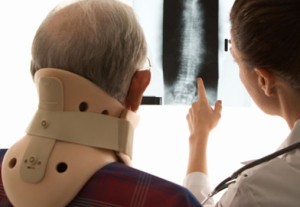A Disability Lawyer's Perspective At the head of Social Security Administration is the Commissioner of…

So You Need to File for Social Security Disability or Supplemental Security . . .What Next? Part Three
Providing Evidence of Disability
 Evidence is the key to any claim for disability. After all, if you claim to be disabled, you are stating that you have a medical condition which prevents you from working. Unless you have medical evidence of your disabling conditions, you will probably not be found disabled.
Evidence is the key to any claim for disability. After all, if you claim to be disabled, you are stating that you have a medical condition which prevents you from working. Unless you have medical evidence of your disabling conditions, you will probably not be found disabled.
SSA will look at the following types of medical evidence to decide if you are disabled.
Medical Treatment Records
Treatment records are records of office visits that your doctors and psychologists keep. These records include physical examinations and mental status examinations. Also, this is where your doctor will note your complaints and symptoms.
When deciding whether your testimony is believable, a major factor will be how consistent your testimony is with the symptoms that have been reported to your doctors. That is why it is very important to always tell your doctors all your symptoms. Do not exaggerate and do not lie, but make sure your doctor knows how you feel.
Objective Medical Evidence
 Objective evidence is evidence that is not based on your statements. Instead, objective evidence is medical tests. These tests include x-rays, MRIs, nerve conduction studies, CT scans, arterial studies, and echocardiograms.
Objective evidence is evidence that is not based on your statements. Instead, objective evidence is medical tests. These tests include x-rays, MRIs, nerve conduction studies, CT scans, arterial studies, and echocardiograms.
SSA places great weight on objective evidence. This is probably because these objective studies do not lie or exaggerate. When serious problems are noted on objective tests, you are more likely to be believed when you testify about your symptoms. When objective evidence is not there (ex. only mild findings or no testing performed), it will be more difficult for you to prove that your medical problems are disabling.
Treating Source Opinions
A treating source opinion is a statement from one of your treating doctors which assesses how your medical condition limits you. A common example would be an opinion from an orthopedist explaining how much you can lift, how long you can stand, or how long you can sit. Another common example would be from a psychiatrist who explains how concentration, social functioning, or task completion would be affected by your mental health problems.
Usually your treating sources will only give these opinions when they are asked to do so. You will probably have to ask your doctor to complete a work assessment. Attorneys should have forms that they have created to assist a treating source in answering the most relevant questions pertaining to your claims for disability.
Consultative Evaluations
Sometimes the Social Security Administration will send you to a physician or psychologist that has been hired to evaluate disability claims. If you are scheduled for one of these exams, you need to be honest and explain all your physical and mental problems.
SSA uses these consultative evaluations at all stages of the disability process.
State Agency Reviewing Doctor Opinions
Before you receive an initial decision or reconsideration decision, SSA will hire a doctor to review all the medical evidence in your record. After reviewing this evidence, this doctor (or often two doctors- a psychologist and a physician) will state what, if any, work related limitations you have.
At the initial and reconsideration stages, SSA usually follows whatever these reviewing sources recommend. If these doctors find that you are disabled, you will usually be found disabled. If not, you will have to attend a hearing before an ALJ.
Remember, these doctors only look at the evidence in the file at the time they make their decision. The ALJ will have the opportunity to look at all your medical evidence and to hear you testify at your hearing.
Hearing Testimony
At most hearings, both you and a vocational expert will testify under oath. In some hearings, the ALJ will also call a medical expert to testify. In very rare cases, the ALJ will allow family members or other individuals to testify.
Everyone who testifies at a hearing will be placed under oath and is subject to the penalty of perjury.
You usually testify first, answering questions from the ALJ and your attorney. Topics can include background information, work history, types of treatment, medical problems, and your symptoms. You need to explain how your medical symptoms affect your ability to work and to perform your daily activities. You need to focus on your symptoms and not the names of your medical conditions.
If a medical expert is called to testify (usually by phone), he/she does so after you testify. Medical experts review the records and state their opinions concerning the listing of impairments (Question 3) and any functional restrictions that they believe you may have. The ALJ makes the decision of whether a medical expert will be used in each case. You need to make sure that the doctor testifying is qualified to testify regarding your medical conditions.
The final person testifying at your Hearing is the vocational expert. This person provides testimony about your past work and how that work is generally performed within the economy. The vocational expert will respond to questions from both the ALJ and your attorney. These questions ask whether a significant number of jobs exist for an individual with various work-place restrictions. Typically, numerous sets of work-place restrictions will be described to the vocational expert (commonly called a hypothetical worker in the hearing). The vocational expert will usually identify jobs in response to some questions, and will sometimes identify no jobs in response to other questions. Afterwards, it is up to the ALJ to decide which set of restrictions (hypothetical worker) best describes you. If the ALJ decides that it was a hypothetical worker where the vocational expert identified jobs, then you will probably be found not disabled. If the ALJ decides that the claimant is best described by a hypothetical worker for which no jobs (or an insignificant number of jobs) were identified, then you will be found disabled.
Letters from Family, Friends, or Employers
Hearings are usually scheduled for about one hour, it is rare (and somewhat discouraged) for anyone else to testify. However, that does not mean your family and friends are unable to assist you with your claim for disability.
Letters from people who know you well and see you regularly can be helpful in proving disability. The best letters focus on observations of your symptoms. Letters that focus on the names of different diagnoses or on what you have told others are not as helpful.
Letters from prior employers are also helpful in proving disability. The best letters come from employers where you worked at the time you became disabled, or where you attempted to work after your disability began. These letters are helpful when they specifically describe how the employer noticed you struggling to perform your job at or around the time that you claim to have become disabled.
It is up to you to prove that you are disabled. The only way to do so is with supporting evidence. The most important evidence is within your medical records (treatment notes and objective testing). This is why it is so important that you see your doctors on a regular basis. Without this treatment, there will not be enough evidence for you to be found disabled.
Unfortunately, this is a catch 22 as you may not have insurance and may not qualify for Medicaid. This is why we provide our clients a list of Free Clinics where you can be treated for your conditions. It is very important that you take advantage of these and other resources so you have the evidence necessary to be found disabled.
Next up . . . Knowing the Process.
Have a question before then? Contact Us.






My uncle applied for social security disability a while ago, but he was denied. He has a clear disability that causes him pain when he has to stand or sit for any lengthy period of time. Maybe a disability lawyer can help him obtain all the medical records he needs. I wonder if a nerve conduction study could show that his disability is causing him pain.
Please feel free to call us anytime. We’d be happy to discuss the process, how we can help, and answer any questions you may have. Objective evidence such as a nerve conduction test can often be very helpful in Social Security Disability cases if they confirm a medical condition.